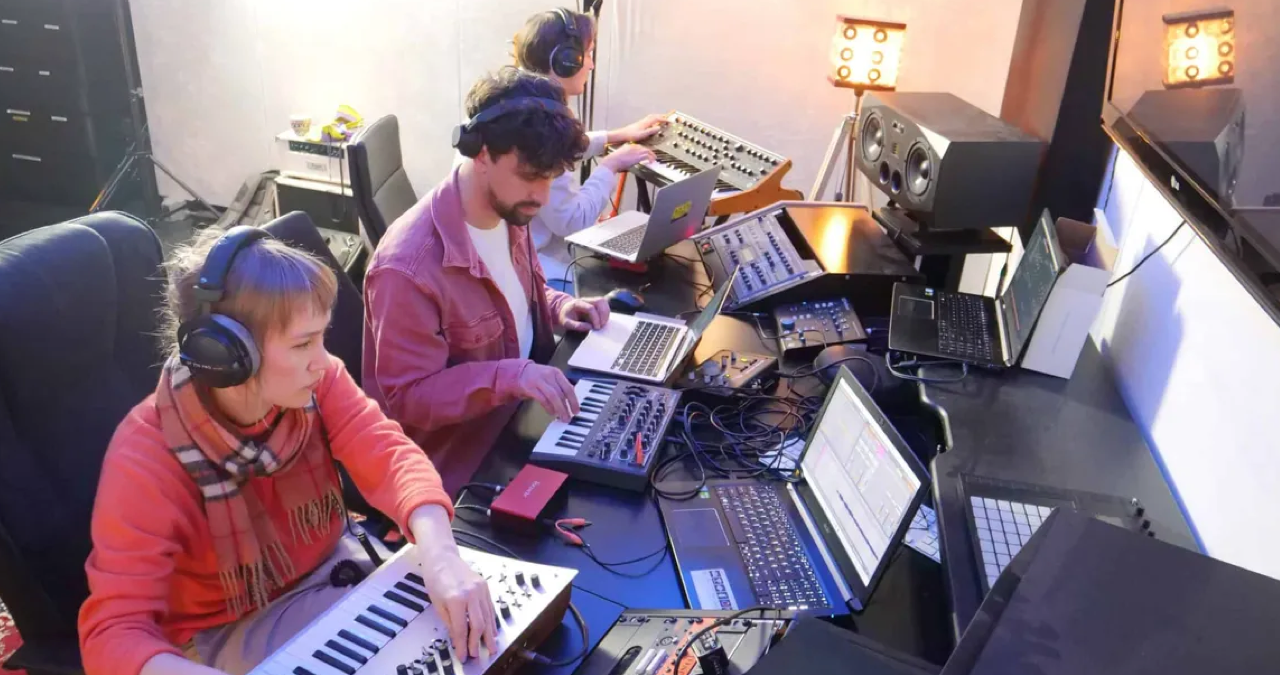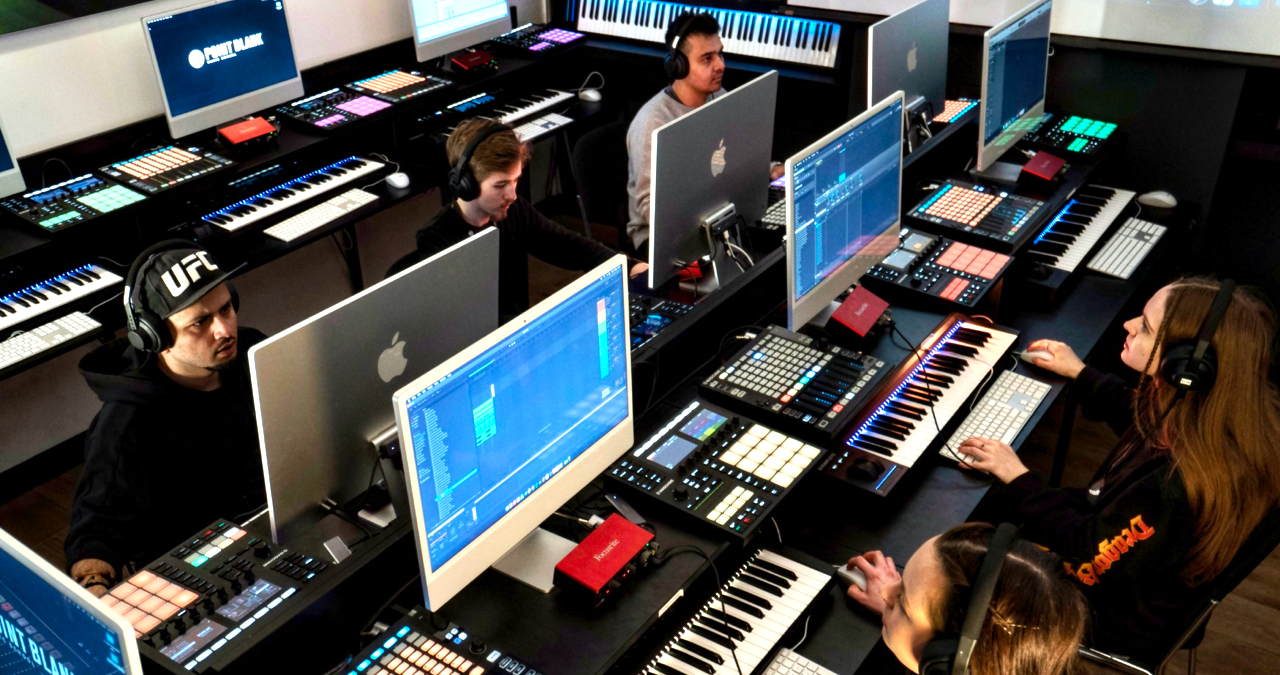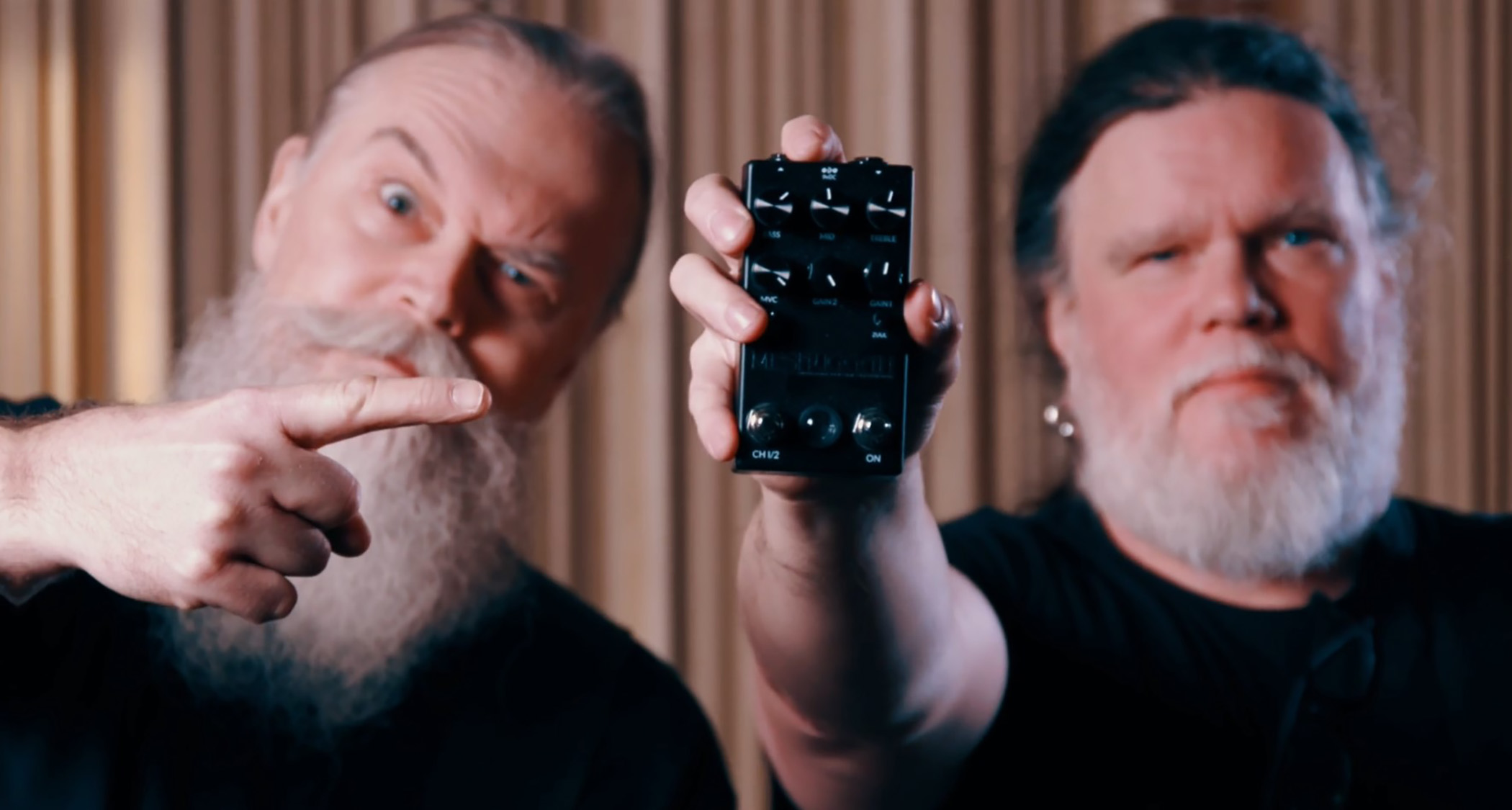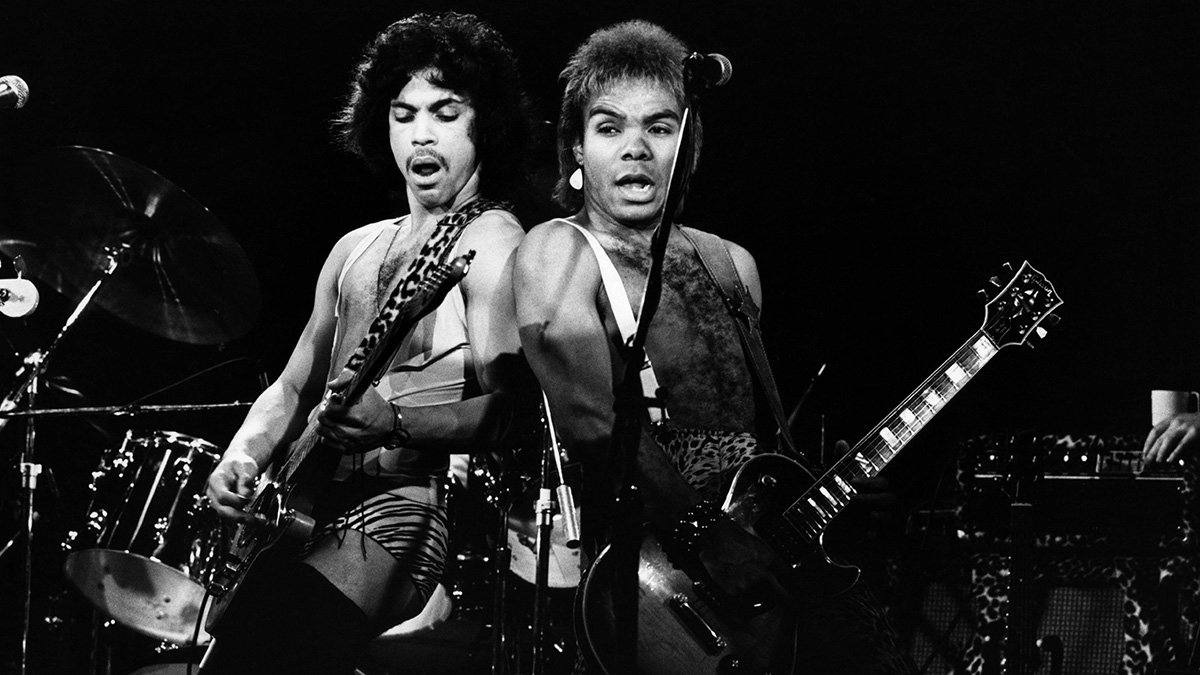“It’s by no means necessary to attend a music production school to have a career in electronic music - this is, in fact, a relatively new concept”: Opinions vary on the value of music production schools in 2025
In a recent long-read feature, we heard a range of views on the usefulness of music production schools when building a career

Recently, we shone a light into the benefits of attending a music production-focussed school or college. After speaking to a range of artists and music educators, we learned that the balance of cost, commitment and time against the benefits of certified education and a wider contact base might not be equally measured for everybody.
As part of our long-read, writer Adam Douglas spoke to Ski Oakenfull, the Head of Education and Curriculum at pointblank Music School, the well-known international music production school with campuses in London, Los Angeles, Ibiza, and online.
Ski informed Adam of the benefits of attending a course at pointblank, and how, when contrasted against the primary rival of music production colleges (YouTube-based video tutorials coupled with free educational content available online) pointblank (and schools of its kind) had a range of singular attributes that set them apart.
A main factor is having real-life experts on-hand, ready to provided expertly-curated content directly: “I mean, I look stuff up on YouTube all the time,” Ski admits, “if I'm stuck or there's some new feature I want to check out but there's normally about 10 videos that all do the same thing. The content that we create in our courses are really well curated and thought out.”
Oakenfull also points to the fact that it's easy to find yourself being 'succesful' in terms of musical recognition in the modern industry, but music production schools reinforce the market value of music-making and the job roles that orbit it. "Music production education is very much encouraging young people who are going into the industry to think about monetising themselves and being entrepreneurial having a portfolio career.”

In the same feature, our writer canvassed a pool of music-makers for their take on what the value of music production schools is in the modern age, needless to say - there were quite a diverse range of perspectives.
Firstly, on the more positive front, soundtrack composer (and YouTube content creator) Alex Ball completed a degree in music composition for professional media. “It was the groundwork for all sorts of things, music and music business related,” Ball explained. "I had a sizeable student loan, but paid it off with work directly related to my degree, so for me, it was essential even though nobody has ever asked me what my qualifications are.”
Techno artist Saytek, who has been performing and releasing records for two decades, told us that, in his view, “it’s by no means necessary to attend a music production school to have a career in electronic music - this is, in fact, a relatively new concept.”
“I haven’t had formal music education,” says techno/jazz merging artist Chizawa Q, “Most of what I know comes from self study through books and videos.”
This take is echoed by experimental musician Sarah Belle Reid, who said, “Formal music schools and programs can be a great option for certain people,” she says, “but I don’t think they should be viewed as the only path to success in music.
“Going through a degree or vocational progress focussed on musical production or performance or instrument design can help clarify the types of skills you need to cultivate," Reid continues, "but it’s definitely not the only way to acquire those skills.”
However, one thing that all those asked agreed on, was the value that music production courses and schools provide on the networking and contact-forming front - fairly essential for getting ahead in the industry.
“I will say,” comments Sarah Belle Reid, “As someone who went to formal music school, something I did find extremely valuable was the community aspect of being in a school environment with others. It’s one thing to learn the skills and tools, but the conversations in the hallway in between classes and the relationships you build with others in your field can offer lifelong value.”
So, what is your view? Are these kinds of colleges and courses worth pursuing for those aspiring to be professional music-makers, producers or industry figures, or are there easier - and more affordable - options and pathways to learning now available?
Get the MusicRadar Newsletter
Want all the hottest music and gear news, reviews, deals, features and more, direct to your inbox? Sign up here.
Read our full deep-dive on the topic here, and let us know your thoughts!

I'm the Music-Making Editor of MusicRadar, and I am keen to explore the stories that affect all music-makers - whether they're just starting or are at an advanced level. I write, commission and edit content around the wider world of music creation, as well as penning deep-dives into the essentials of production, genre and theory. As the former editor of Computer Music, I aim to bring the same knowledge and experience that underpinned that magazine to the editorial I write, but I'm very eager to engage with new and emerging writers to cover the topics that resonate with them. My career has included editing MusicTech magazine and website, consulting on SEO/editorial practice and writing about music-making and listening for titles such as NME, Classic Pop, Audio Media International, Guitar.com and Uncut. When I'm not writing about music, I'm making it. I release tracks under the name ALP.
“Without investment in music education our talent pipeline is at risk of drying up along with the huge opportunities for economic growth it brings”: UK Music draws up five point plan to “turbocharge” music education
“These tariff actions will have a long-term effect on musicians worldwide”: The CEO of NAMM urges Trump to dump tariffs on components of musical instruments









